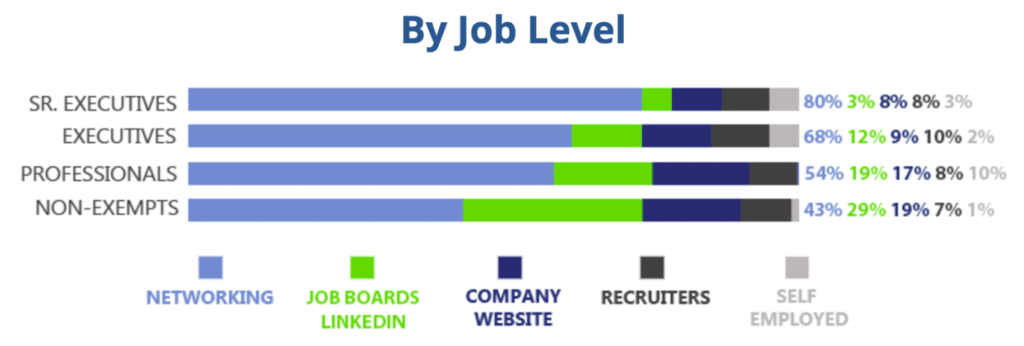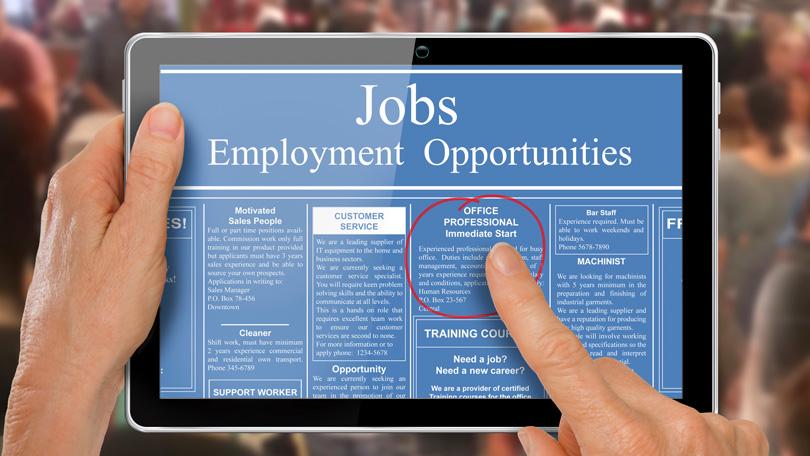When it comes to interviewing, salespeople have a natural advantage over employees in other departments: they talk to people every day, they are naturally persuasive, and they have a strong internal motivation. That means that any time they interview for a sales position, the competition is stiff.
Not every salesperson is good at pitching themselves, but this is no reason to get tongue-tied. It is not worth leaving it to chance that the hiring manager will notice all shining qualities from the resume. Before an interview, after doing research on the company, salespeople can tweak their mindset to put themselves in the best possible position to sell their skills effectively to a hiring manager.
6 Interview Tips for Salespeople:
1. You are a solution, not a product.
Salespeople sell products and services every day, but many of them find it distasteful to think of “selling” themselves to a company like a product. Products get used up and eventually thrown away, and they are static—not a great way to describe a person. Instead, take a page from the modern sales playbook and sell a solution, not a product. In this interview, the employee is the solutions package. Tailor the pitch of the “solution’s” features and capabilities to match with the company’s business needs, and show them why they should expect a good ROI if they make the hire.
This also helps to dampen some of the personal feelings that can creep into interviews. Interviews are stressful, but their purpose is to determine whether or not a candidate is a good fit for the job in question. Analyze the job’s goals and present the solution—you. There are no hard feelings if the job ends up not being a good fit.
This shift in mindset sets the best possible tone for the interview, and puts the interviewee in a position to speak from firsthand experience and practice.
2. Tell a story with a timeline.
Every employee should have a set of career goals and a career timeline (if not, start one now). In the interview, the interviewee should tell a story that shows the hiring manager where they started, what goals they have already reached, and what goals they hope to reach at this new position.
Be honest and be flexible. Anyone who is hiring a salesperson is going to be able to see past a fluff response.
The solutions selling mindset is the starting point. Salespeople who practice consultative solutions selling know that a static, rigid solution will eventually become obsolete and lose its value. People are not finished products; they grow and change. Likewise, a good hiring manager recognizes that to attract the top talent, they will need to provide growth opportunities for their people. Be ready to describe what that looks like.
3. Have numbers ready.
 Many departments struggle to quantify their ROI. Not sales! Salespeople are fortunate to have easy access to the impact they have had on their company’s bottom line. Most companies publish regular reports showing rankings, quotas, revenue, and other metrics. This is a key advantage because it is direct proof of success.
Many departments struggle to quantify their ROI. Not sales! Salespeople are fortunate to have easy access to the impact they have had on their company’s bottom line. Most companies publish regular reports showing rankings, quotas, revenue, and other metrics. This is a key advantage because it is direct proof of success.
Start with these numbers:
- Percent achieved of quota
- Number of financial quarters of hit/exceeded quota
- Ranking amongst other salespeople in the company
- Records hit (e.g. Presidents Club)
- Revenue generated
- Marquee clients or biggest contracts signed
- Travel percentage (local, regional, nationwide, international)
These metrics will not have their full effect when fired out all at once. Use another sales tactic here: incorporate these numbers into a narrative that tells the story of career growth.
After the interview, crunch the numbers the hiring manager provides. Consider the OTE vs. base salary split, any commission caps, the ramp-up time, sales cycle length, and other factors. Avoid negotiating hard during the interview, when the pressure is on.
4. Go above and beyond references.
Hiring managers generally contact references after the second interview, when they are fairly sure they want to make the hire. Don’t wait that long! Get colleagues, managers, and star customers to write endorsements on LinkedIn (this is good practice even for salespeople who are not interviewing, as it gives legitimacy when a prospect looks them up). Verbally quote satisfied customers in the interview. Consider sending a letter of recommendation from a marquee client or a senior management executive.
Coach references before submitting them to the hiring manager. Many people are not sure how to give a good reference over the phone. At a minimum, provide them with the job description, resume, and key facts that the hiring manager needs to hear.
Be sure to adhere to all privacy agreements, both of the current employer, customers, and hiring company. Violating the privacy of a customer or employer is grounds for termination.
5. Sell “brand value.”
When pitching a solution to a prospect, salespeople have to differentiate their solutions package from the competition. Whoever presents the best value to the customer is usually the one who wins the deal. Not all customers are looking for the lowest price, but almost every customer wants good value for their money.
After getting their attention with sales numbers, move to demonstrate personal brand value. Highlight key differentiators such as niche market knowledge, experience, and any unique approaches that fit well with the company’s goals. People outside of sales sometimes see salespeople as interchangeable. Prove them wrong with a demonstration of why this is the best possible investment they can make for this position.
Some companies incorporate a mock sales presentation into their interviews. If so, take full advantage. Do intensive research on the company’s products and solutions. If they have an online trial, spend time getting to know it. Find out their customers and pain points. Prepare a sales presentation and show them unique and exceptional sales skills.
6. Overcome objections
 Top salespeople have to be big-picture and detail-oriented at the same time. When it comes to closing high-profile deals, they need to anticipate a prospect’s objections and overcome them with solid, compelling data. The same rule applies in an interview.
Top salespeople have to be big-picture and detail-oriented at the same time. When it comes to closing high-profile deals, they need to anticipate a prospect’s objections and overcome them with solid, compelling data. The same rule applies in an interview.
No one is perfect, so find weak spots in job history or skills and have a defense ready. Ask for the objection, and then overcome it enthusiastically. This gives the hiring manager further evidence of how they can expect their customers to be treated if they go through with the hire.
While many employees have to learn a totally new set of skills when they go into an interview, salespeople have a tremendous advantage with highly developed interpersonal skills in negotiation, solutions proposals, needs analysis, and overcoming objections.
An interview is a hiring manager’s opportunity to make a decision about an investment in a person. What they need in order to make this decision is evidence that the salesperson can deliver on their promises, uphold the company’s reputation, and close deals. Give them the proof that the person sitting in front of them is the best fit for their job.
Looking for a new sales job? Check out our open positions here.





 Trying to find a good recruiter on a deadline during a crisis is not a good idea. Build a relationship with a recruiter ahead of time. A good recruiter will always be open to potential future job openings, and they will have the benefit of extra time to get to know the company before a job opening comes along. Choose a recruiter who knows the industry well and who has a strong pipeline of candidates that could fill the company’s tough positions.
Trying to find a good recruiter on a deadline during a crisis is not a good idea. Build a relationship with a recruiter ahead of time. A good recruiter will always be open to potential future job openings, and they will have the benefit of extra time to get to know the company before a job opening comes along. Choose a recruiter who knows the industry well and who has a strong pipeline of candidates that could fill the company’s tough positions. The “candidate pipeline” is a popular buzzword, but in practice, it is difficult to build one as an employer. For starters, most top job candidates will not talk to a potential employer unless there is an actual job opening—which defeats the purpose of building a pipeline. By contrast, a recruiter has a much easier time building a rolodex of candidates who may be interested if the right opportunity comes along.
The “candidate pipeline” is a popular buzzword, but in practice, it is difficult to build one as an employer. For starters, most top job candidates will not talk to a potential employer unless there is an actual job opening—which defeats the purpose of building a pipeline. By contrast, a recruiter has a much easier time building a rolodex of candidates who may be interested if the right opportunity comes along. Recruiter fees are expensive, but so are hiring mistakes and never-ending hiring cycles. Recruiters also make the hiring process cheaper in several ways. For starters, they source within the hiring manager’s target salary range whenever possible, keeping costs down.
Recruiter fees are expensive, but so are hiring mistakes and never-ending hiring cycles. Recruiters also make the hiring process cheaper in several ways. For starters, they source within the hiring manager’s target salary range whenever possible, keeping costs down.
 A good recruiter will request a consultation call to get detailed information on the job. They will prepare questions and get as much information as possible on the role and the company landscape, especially if this is one of the first job orders they are filling for the company. A consultation call usually takes half an hour to an hour. Additionally, recruiters benefit from detailed feedback after resume submissions and interviews. This helps them to hone their search and locate a good fit. Clear expectations help everyone to do a good job.
A good recruiter will request a consultation call to get detailed information on the job. They will prepare questions and get as much information as possible on the role and the company landscape, especially if this is one of the first job orders they are filling for the company. A consultation call usually takes half an hour to an hour. Additionally, recruiters benefit from detailed feedback after resume submissions and interviews. This helps them to hone their search and locate a good fit. Clear expectations help everyone to do a good job.

 Unified communications customers expect their salespeople to be experts in the products and services they sell. These products sometimes have vastly different technical specs, and each company’s product portfolio has dozens of different features.
Unified communications customers expect their salespeople to be experts in the products and services they sell. These products sometimes have vastly different technical specs, and each company’s product portfolio has dozens of different features. Top candidates know they are highly sought-after. They are regularly approached by recruiters or head-hunters and rarely apply to open jobs. Do not treat them as any other applicant; roll out the red carpet.
Top candidates know they are highly sought-after. They are regularly approached by recruiters or head-hunters and rarely apply to open jobs. Do not treat them as any other applicant; roll out the red carpet. The interview area will give the candidate a reasonable expectation of the company’s work environment. Candidates intentionally put themselves in hyper-observant mode and notice everything. Take a walk along the route an interviewee would take through the building, and observe the surroundings through their eyes.
The interview area will give the candidate a reasonable expectation of the company’s work environment. Candidates intentionally put themselves in hyper-observant mode and notice everything. Take a walk along the route an interviewee would take through the building, and observe the surroundings through their eyes.
 Candidates hear actions, not words. A prompt, efficient hiring process is evidence of the speed of daily business within the team. The most sought-after candidates stay busy. Time is money for candidates as well as for companies, and the time investment for a full interview cycle represents a substantial opportunity cost for them.
Candidates hear actions, not words. A prompt, efficient hiring process is evidence of the speed of daily business within the team. The most sought-after candidates stay busy. Time is money for candidates as well as for companies, and the time investment for a full interview cycle represents a substantial opportunity cost for them.